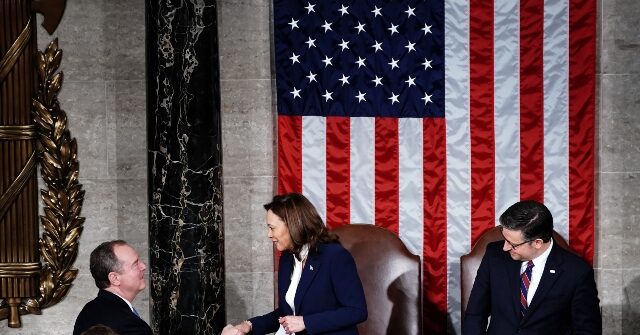Rep. Adam Schiff, a Democratic Congressman from California, is making headlines by urging major tech companies to combat the spread of what he describes as election misinformation and disinformation as the 2024 election approaches. Schiff, alongside several Democratic colleagues, addressed a letter to the CEOs of prominent platforms such as Meta, X (formerly Twitter), TikTok, and Google. In their correspondence, they stressed the urgency of adopting more stringent content moderation policies to mitigate the potential dangers posed by misleading online content during elections. Schiff’s emphasis on the necessity of protecting democracy through stricter regulation of information shares a stark contrast with his previous involvement in promoting the controversial Trump-Russia collusion narrative.
This call to action comes with a layer of irony, particularly given Schiff’s own history in disseminating unverified claims about the alleged collusion between the Trump campaign and Russia. For a long time, he utilized his position as the head Democrat on the House Intelligence Committee to assert that there was not only circumstantial but also significant evidence supporting a conspiracy between Trump and Russia. Schiff’s public declarations were often characterized by a sense of certainty, despite the absence of substantiated proof to back his claims. This behavior raises questions about the sincerity of his recent stance on election integrity, suggesting that his latest position may be more about political maneuvering than a genuine commitment to veracity.
Schiff’s previous efforts to curtail the spread of information also highlight his complicity in what could be seen as censorship. Following the release of the Nunes memo, which revealed misconduct within the FBI regarding surveillance operations, Schiff attempted to rally social media companies to restrict accounts that disseminated the memo, assuming they were politically motivated by Russia. Twitter’s internal investigations showed no significant Russian origin behind the hashtags associated with the memo, yet Schiff’s actions reflect a tendency to categorize dissenting viewpoints as potential misinformation, raising concerns about his commitment to open dialogue and free speech.
The broader context surrounding Schiff’s demand emerges amidst a growing scrutiny of social media platforms and their handling of potentially misleading content. This heightened concern has been underscored by recent incidents, notably the acknowledgment from Meta CEO Mark Zuckerberg about the limitations placed on the Hunter Biden laptop story back in 2020. Following FBI warnings regarding possible Russian disinformation, Facebook suppressed the New York Post article detailing alleged corruption linked to Biden’s family, a move that Zuckerberg later admitted was incorrect. This incident has fueled ongoing debates about the fine line between moderating content and infringing on free speech, further complicating the conversation around election integrity.
Zuckerberg’s retrospective acknowledgment that the suppression of the Hunter Biden laptop story was unjustified raises pertinent questions about the role of tech companies in influencing public discourse. As platforms navigate the demands for responsible content moderation, the implications of their decisions can have profound consequences on electoral processes and public perception. Schiff’s recent appeal for action against misinformation thus appears to align with an established trend in which tech giants must grapple with the consequences of their policies while balancing the need for transparency and accountability.
The ongoing dynamics surrounding misinformation, censorship, and the influence of major tech companies on political discourse underscore the complexities of modern democracy. As Schiff advocates for increased surveillance of online content, it is essential to consider the broader implications of such actions and the risks associated with suppressing differing viewpoints, particularly in the context of partisan politics. While the pursuit of truth and accuracy in the electoral process is undoubtedly important, it is equally vital to navigate these issues with an awareness of the potential for overreach and the chilling effects it may have on open discourse in society.

